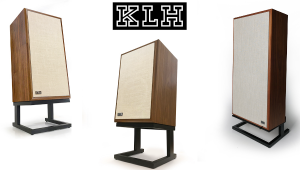Ted is a hardcore Trump supporter and a miserable human being in general. DO NOT support him or his career! Buy something else.
Ted Nugent: The Music Made Me Do It

To modify a phrase Quincy Jones had written out on a sign posted on the front door of A&M Studios in Los Angeles for all of the musicians arriving to record their parts for “We Are the World” in January 1985 to see, “Leave your predispositions at the door.” The reason I mention this upfront is that our interviewee today is none other than the Motor City Madman himself, Ted Nugent, and the only thing we’ll be talking about here directly relates to the title of his new full-bore, crunch-rocking album, The Music Made Me Do It (Round Hill Records).
“Music is the ultimate escape,” Nugent believes, “and I want you to be able to escape when you’re listening to my music. There are no politics, no wars, no hate, no lies, no friction, no bad nothing — it’s just music. There’s no Democrat or Republican anything — there’s nothing. It’s the music, man! And everybody has that escape at their fingertips.”
Those are some darn good nonpartisan words we can all live by and agree upon, I think. Nugent, who turns 70 next week, got on the line with me from him Michigan compound to discuss the sonic impetus for The Music Made Me Do It, the never-ending importance of capturing the right guitar tone, and the connection we all have with where and how music itself ultimately originated.
Mike Mettler: I really enjoy the sound palette on The Music Made Me Do It, Ted. For example, in “Backstrap Fever,” there are some really good stereo moments where you’re zapping some fiery guitar licks off into the left channel and then moving them over to the right.
Ted Nugent: How beautiful is that, huh? What a great record. And we can thank the great Michael Lutz [pronounced “loots”], the czar of Brownsville Station and co-author of “Smokin’ in the Boys’ Room,” for a lot of that. [Lutz, who co-produced The Music Made Me Do It with Nugent, co-wrote “Smokin’ in the Boys’ Room” with Cub Koda. It reached No. 3 on the Billboard Hot 100 singles chart in 1973.]
He is so representative of what my bassist Greg Smith and my other brother and drummer, Jason Hartless, live and breathe and celebrate every day — real music. We still take our inspiration from (said all in one breath) Bo Diddley, Chuck Berry, Little Richard, Jerry Lee Lewis, Howlin’ Wolf, Muddy Waters, John Lee Hooker, The Stones, The Beatles, The Kinks, The Who, and The Ventures! (laughs) We still follow all the original founding fathers of outrageous, unprecedented, defiant sonic bombast. And I’m glad that you’re an audio guy, Mike, because obviously, my whole life pivots on this guitar tone I have.
Mettler: Tone has always been important to your sound and style of playing, all the way back to The Amboy Dukes and “Journey to the Center of a Mind.” I still hear it played regularly on Little Steven’s Underground Garage channel on SiriusXM, in fact. [Released as a single in May 1968, “Journey,” which features an iconic Nugent guitar lead and solo, reached No. 16 on the Billboard Hot 100 singles chart.]
Nugent: What about a bunch of teenagers making a killer song and being able to play it that good? How cool was that?
Mettler: Very cool, I’d say. Was it something in your literal DNA as a kid that you knew you had this kind of talent?
Nugent: Well, let’s just admit that God loves me. (both chuckle) I was born in 1948, and the planets aligned. Les Paul had just electrified the guitar around that time, and then there was Bo Diddley and Chuck Berry — I mean, are you kiddin’ me? Along with Duane Eddy and The Ventures, and all those electric guitar founding fathers — it was all about the tone, and how all those Fender guitars came to the forefront with Magnatone amplifiers, the pickups on the Strats, and the Les Pauls. That was like Henry Ford innovation, you know what I mean?
And those tones — you listen to “Wham!” and “Susie-Q” by Lonnie Mack, and you can hear the tone that Stevie Ray Vaughan was able to emulate and expand upon, creating that sonic dream of his.
Mettler: Right, on The Wham of That Memphis Man! [Mack’s 1964 album containing both of those aforementioned innovative guitar tracks].
Nugent: Yes! Of course, I’m the bastard son of the Gibson Byrdland myself, and what Jimmy McCarty did with Mitch Ryder and The Detroit Wheels on a Gibson Byrdland through a Fender amp — a sound that so owned me when I first heard it in the early 1960s. It really was that tone, that electric spread of sounds. All of those guys were the Lewis and Clarks of sound.
[To this day, Nugent continues to play his prized 1966 Byrdland #9, which still has its stock wiring and pickups. It can also be seen in use on the cover of his self-titled 1975 album, Ted Nugent.]
 Mettler: I look at those early records and early 45s as the talismans for how I connected with music initially. What was the first 45 you had as a kid — was it a Mitch Ryder record, or was it something else that started it all off for you?
Mettler: I look at those early records and early 45s as the talismans for how I connected with music initially. What was the first 45 you had as a kid — was it a Mitch Ryder record, or was it something else that started it all off for you?
Nugent: Well, certainly I had Lonnie Mack, Duane Eddy, and The Ventures. And I loved what The Beach Boys did with the Fender guitar and Fender amps, emulating Chuck Berry. And, of course, then you gotta give it all to Chuck Berry and Bo Diddley. I mean, who would think that grinding, edgy, dirty tone would be desirable, unless you were a rebel and a revolutionary with a level of defiant, irreverent motivation? For every guitar player that I know — and I know them all — and every guitar player I admire — and I admire them all — it starts with dialing in the tone.
All of those terms still motivate me to this day, and I think our battle cry to the quality of life, whether you’re an audio guy or not, is: “The music makes me do it.” And the music makes you do it too, Mike — that’s why you test speakers and write about sounds. That’s why we do this!
Michael Lutz, and [engineers] Tim and Andy Patalan — these guys are the sound maniacs. Just like [producer] Tom Werman and [engineer] Tony Reale were with me back then [during Nugent’s mid-/late-1970s solo recording career].
Mettler: I’d say Ron Nevison would be on that list too. [Nevison produced Damn Yankees, the early ’90s supergroup Nugent was in with Tommy Shaw of Styx and Jack Blades of Night Ranger.]
Nugent: And Ron Nevison too! And Jimmy [Page] with the Zeps, and Eddie Kramer. Eddie was my producer on The Amboy Dukes’ Marriage on the Rocks/Rock Bottom [released in March 1970]. And so, we’ve always been “sound guys.” What Michael Lutz and the Patalan brothers bring to the sonic battlegrounds are in the seeking of that ultimate combination of tonalities, in those cravings of getting those “edge” tones and edge sounds. It’s about, “Will this tone work on this speaker, or an inch from this speaker, or six inches from the speaker?” The detail and the minutiae these guys go through with getting my Gibson Byrdland sound — you really gotta hand it to them, because I don’t have the patience to crawl in front of speakers for six hours at a time to find out which are the right mikes and the right cables to use. (chuckles)
Mettler: That said, you would know instantly if your guitar didn’t sound right in the studio.
Nugent: That’s right — and I’d be the first one to go, “You know, in the room, I’m hearing this, but I’m not hearing it through the speakers.” And you’ll appreciate this more than just about anyone else, Mike — Michael’s got one of those the original Neve boards and a lot of that early analog equipment. They’re just tone maniacs. (chuckles)
You know, I really am an idea guy, and maybe someday people will admit that Ted Nugent wrote some great song titles, some great album titles, some great lyrics, and the best guitar licks in the world. That’s what I think! (chuckles)
I have a funny feeling that for you, and everybody you and I surround ourselves with, the title of my new record is our battle cry for a great portion of our quality of life. Music does make us do it. For everybody I know, music is a force to be reckoned with in their lives — right up there with God, family, country, sex, and food. How lucky are we that we get to wallow and fondle and immerse ourselves in this wonderful, wonderful exploratory world of music?
I say “exploratory,” but it’s still derivative of Chuck Berry and Little Richard and everything before them. It’s what every great artist and band does — we genuflect at the altar of Chuck Berry and Little Richard and Muddy Waters and Mose Allison. There would be no British Invasion without those black artists, and I’d like to see that promoted more.
Mettler: We are all born with a sense of sound and rhythm. The first thing you hear in the womb is your mother’s heartbeat, but it really depends on where you take that in your life as to what you can get out of it, don’t you agree?
Nugent: Not only your mother’s heartbeat, but the first music, in the first actual conscious moment — now stick with Uncle Ted here — there’s a connection with the earth too. The first real music came from a guy in prehistory who had just killed an animal to feed, clothe, shelter, medicate and spiritually invigorate, and make tools, weapons, salves, and tents. Everything came from that animal. And he also learned to stretch that skin to better utilize it — and a stretched skin is a drum.
And what did he kill that animal with? A bow and arrow. And the bow, when you release that arrow, made a sound: twang. I believe that prehistoric man was celebrating either the killing of food or the killing of an enemy to protect his tribe, and the twang of that bow and the thump of that skin — (chants in rhythm) the twang of that bow and the thump of that skin, the twang of that bow and the thump of that skin — that was the first f---ing rock song, man.
Mettler: I can get behind that. You gotta put that idea down for use on your next album, Ted, because I think you’ve nailed it.
Nugent: Oh yeah! What I just conveyed to you I’ve never said before, and I’ve never done that lick! (speak-sings) “The twang of that bow and the thump of that skin” — I mean, that’s a cool lick.
Mettler: (laughs) It sure is! It’s a primal thing, right? It all comes from within, and whether we choose to develop it or ignore it is how people become musicians — or not.
Nugent: Yeah, and I’m intoxicated by it. I’ve been immersed in that primal twang of the bow and the thump of the skin all my life as a hunter, and there is a musicology to that aboriginal, self-sufficient lifestyle — and I live in an adventurous woodland swamp primal-scream reality every day during the hunting season. It’s not just what’s happening physically, but what’s happening spiritually. There’s a term, “the physics of spirituality” — and that’s why, at the tender age of almost 70 (chuckles), I still have that same piss and vinegar the 12-year-old Ted had in the garage in Detroit in 1950-something with my first loud amp. That’s why there’s such an energy and volatility to my music, because when I grab that guitar — and Jimi Hendrix said it best — “There ain’t no life nowhere” [a line from 1968’s “I Don’t Live Today”]. That means there’s nothing else but the music — nothing.
And I think you and I can agree on another thing — one of the great philosophers of all time was Dirty Harry when he said, “A good man always knows his limitations” [a key line in 1973’s Magnum Force]. And nothing cleanses the soul like immersing yourself in music. You’re in love with everything when you love a song.
My music is so pure, so uninhibited, so irreverent, knee-jerk, spontaneous, and fiery, and I think this new record delivers all of those same wonderful elements I just mentioned that make up our favorite music. It’s still alive in this old guitar player, and I thank God every day.
- Log in or register to post comments


...you're selling your ideas and sound miserable at the same time.

Oops, just bought his new album... Sorry, mate. Maybe this isn't working out for you as you had intended.

Ted is a hardcore Trump supporter and an awesome human being in general. Support him and his career!
Or... Buy whatever the heck you want, think for yourself and don't listen anonymous posters on the interwebs.

Don't like his politics. Really dislike his trophy hunting. Not on any list of greatest guitarists. That being said his first solo album is one of the all time greats. The Analogue Productions SACD sounds fantastic.






























































